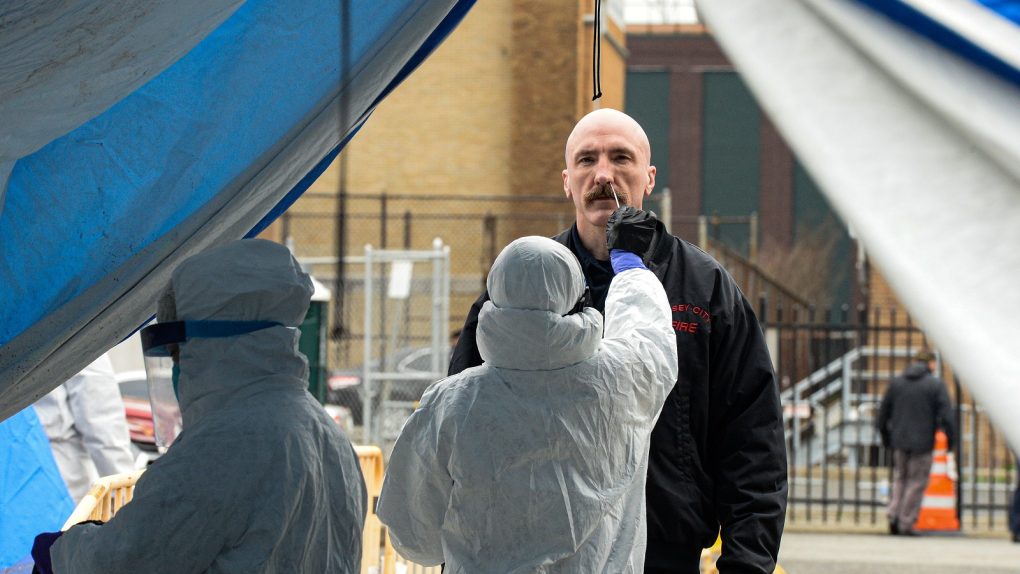- The Centers for Disease Control and Prevention (CDC) said in a statement that there is no highly contagious coronavirus strain that evolved in the US.
- The CDC contradicted a White House coronavirus task force report sent in early January to states that said a new US strain might be fueling the surge in cases.
- The CDC acknowledged it’s highly likely that many coronavirus variants are evolving simultaneously across the globe, including the US. But it would take weeks or months for officials to identify a mutation responsible for the surge in the US similar to the surge in the UK.
The novel coronavirus pandemic took a scary turn a few weeks ahead of Christmas when two countries announced the discovery of two SARS-CoV-2 mutations that seemed to be more contagious than their progenitors. The UK’s B.1.1.7 and South Africa’s B.1.351 (or 501.V2) strains were detailed in the following weeks.
The first study looking at the British mutation found it to be more infectious than other versions, and data from the country confirmed as much. The UK is facing a record number of cases and hospitalizations, exceeding previous peaks. The numbers are all the more worrying considering that the country was in a soft lockdown before the mutation was announced, and restrictions have intensified since then. The South African strain became dominant in the country, which is also dealing with a record wave of infections. In recent weeks, health officials were worried that B.1.351 would negate antibody drugs and vaccines, but a new study from Pfizer and BioNTech showed their drug could neutralize both strains.
These are the only worrying new strains right now, the Centers for Disease Control and Prevention said in a statement. Despite reports to the contrary, the CDC says there is no USA strain. The US has been dealing with a massive COVID-19 wave since mid-October, and it’s yet to flatten the current curve. The White House coronavirus task force has reportedly sent out a memo saying a strain that started in the US was powering the current surge.
The task force said a new coronavirus variant evolved in the US in a document that CNBC obtained. The report was issued to states on January 3rd, saying that the US strain is spreading in communities and may be 50% more transmissible.
“This acceleration suggests there may be a USA variant that has evolved here, in addition to the UK variant that is already spreading in our communities and may be 50% more transmissible,” the report said. “Aggressive mitigation must be used to match a more aggressive virus; without uniform implementation of effective face masking (two or three-ply and well-fitting) and strict social distancing, epidemics could quickly worsen as these variants spread and become predominant.”
Our daily update is published. States reported 2.1M tests, a record 310k cases, 131,889 COVID-19 hospitalizations, and 3,777 deaths. The 7-day averages for cases, hospitalizations, and deaths are at record highs. pic.twitter.com/lCaomGRg5P
— The COVID Tracking Project (@COVID19Tracking) January 9, 2021
The CDC doesn’t share that belief. “It is highly likely there are many variants evolving simultaneously across the globe,” CDC spokesman Jason McDonald told CNBC. He said there’s a “strong possibility” there are variants in the US, but it could be weeks or months until officials identify a variant that is “fueling the surge in the United States similar to the surge in the United Kingdom.”
“Researchers have been monitoring U.S. strains since the pandemic began, including 5,700 samples collected in November and December,” McDonald said. “To date, neither researchers nor analysts at CDC have seen the emergence of a particular variant in the United States as has been seen with the emergence of B.1.1.7 in the United Kingdom or B.1.351 in South Africa.”
Former FDA commissioner Dr. Scott Gottlieb told CNBC that the new strain the White House task force has found behaves like the UK one. He said it’s not the same strain; “if it was, we’d recognize that because we’re looking for it.” The US variant doesn’t have a name.
Viruses mutate all the time, including the novel coronavirus. The most significant genetic change appeared at some point in March. That mutation became dominant worldwide, spreading to Europe and the US first and fueling the massive outbreaks early in the pandemic. The B.1.1.7 and B.1.351 each feature a collection of mutations, including a common change that impacts the spike protein. That’s the mutation that Pfizer and BioNTech tested against antibodies generated by vaccines.
The US is approaching 22 million cases, averaging almost 300,000 new cases per day, as of Friday. The country registered a new record number of deaths on January 7th, when nearly 4,200 people died.








